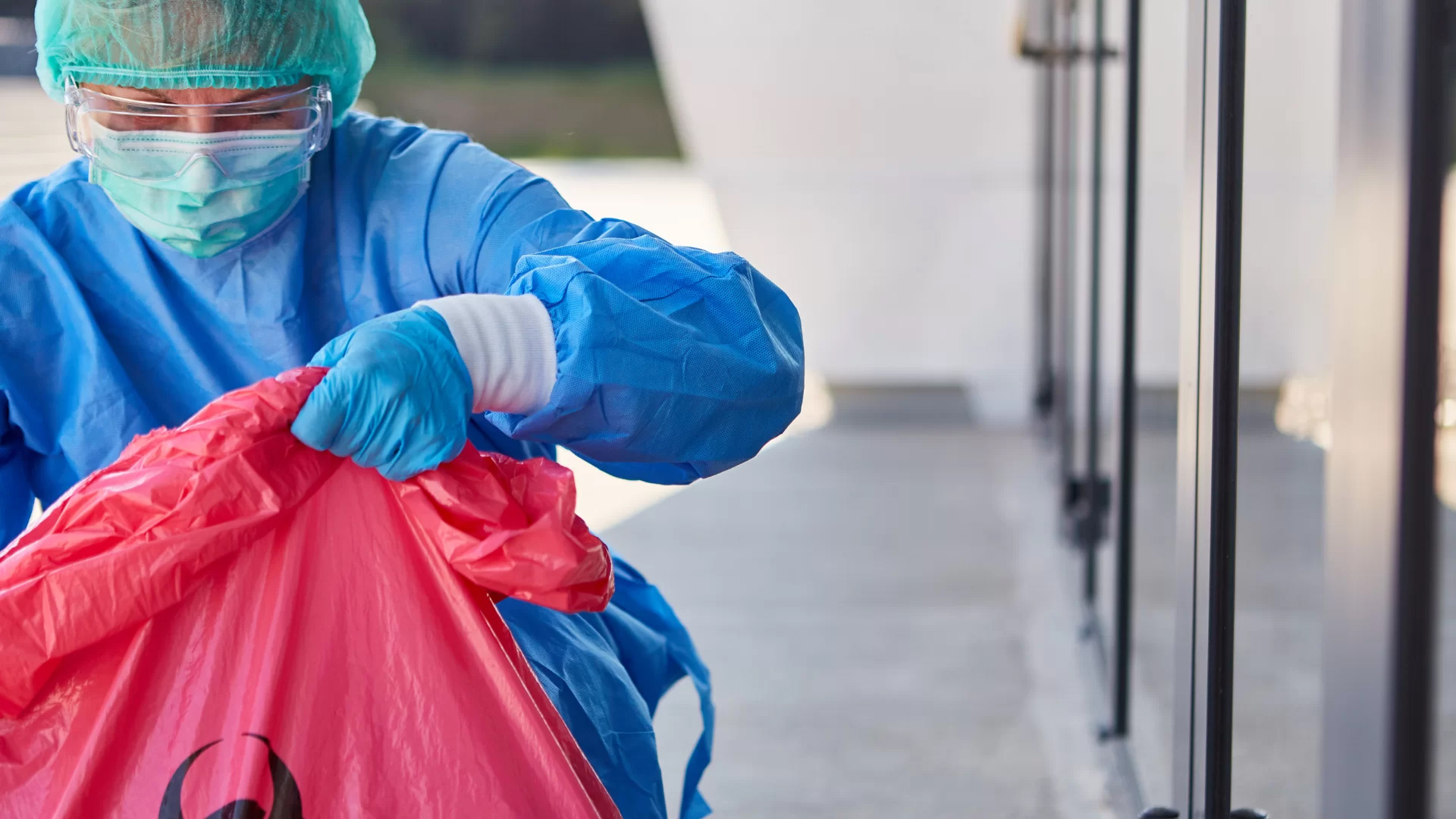Introduction
In today's world, where environmental concerns are at the forefront of discussions, it is essential to address the issue of medical waste disposal. The improper handling and disposal of medical waste can have severe consequences for both human health and the environment. To mitigate these risks, sustainable medical waste disposal practices have become increasingly important.
Sustainable Medical Waste Disposal: An Urgent Need
The generation of medical waste is an inevitable byproduct of healthcare facilities such as hospitals, clinics, and laboratories. This waste includes items such as used needles, syringes, bandages, and expired medications. Improper disposal of this waste can lead to contamination of water sources, soil pollution, and the spread of infectious diseases. Therefore, adopting sustainable practices in medical waste disposal is crucial not only for maintaining a clean and healthy environment but also for safeguarding public health.
Best Waste Management Service in NY: Ensuring Safe Disposal
When it comes to medical waste disposal in New York (NY), it is essential to choose the best waste management service provider that adheres to stringent regulations and maintains high standards. By doing so, healthcare facilities can ensure that their waste is disposed of safely and responsibly.
The Importance of Compliance Services
Compliance services play a vital role in sustainable medical waste disposal practices in New York. These services help healthcare facilities comply with federal and state regulations regarding the handling and disposal of medical waste. They provide guidance on proper segregation, packaging, labeling, storage, transportation, treatment, and final disposition of different types of medical waste.

Hazardous Waste Disposal Service New York: A Critical Aspect
Within the realm of medical waste disposal in New York, hazardous waste requires special attention. Hazardous wastes pose significant risks to human health and the environment due to their toxic properties. Therefore, engaging a specialized hazardous waste disposal service becomes crucial to ensure the safe handling and disposal of these materials.

Sustainable Medical Waste Disposal: A Step Towards Environmental Responsibility
Sustainable medical waste disposal practices not only help safeguard public health but also contribute to environmental conservation. By adopting sustainable practices, healthcare facilities can reduce their carbon footprint and minimize the impact of medical waste on the environment.
Reducing Waste Generation
One of the fundamental principles of sustainable medical waste disposal is waste reduction. By implementing strategies such as waste segregation, recycling, and proper inventory management, healthcare facilities can minimize the amount of waste generated in the first place.
Implementing Proper Waste Segregation
Proper waste segregation is essential to ensure the safe disposal of medical waste. This process involves separating different types of waste into distinct categories Waste based on their properties and disposal requirements. Segregation helps prevent cross-contamination, facilitates recycling efforts, and ensures that each type of waste is treated appropriately.
Embracing Recycling Initiatives
Recycling is an effective way to reduce the environmental impact of medical waste. Certain types of materials, such as plastics and metals, can be recycled and reused instead of being sent to landfills or incinerated. By partnering with recycling facilities, healthcare facilities can contribute towards a circular economy and reduce their overall waste output.
Utilizing Advanced Treatment Technologies
Advancements in technology have led to the development of innovative treatment methods for medical waste. Techniques such as steam sterilization, microwave treatment, and chemical disinfection offer efficient and environmentally friendly alternatives to traditional methods like incineration. Implementing these advanced treatment technologies ensures both safety and sustainability in medical waste disposal.
New York Medical Waste Disposal: Building Trust through Compliance
Compliance with regulations governing medical waste disposal is crucial for building trust within the community. Healthcare facilities that prioritize compliance demonstrate their commitment to protecting public health and the environment. They also instill confidence in patients, staff members, and local residents that their operations are conducted responsibly.
The Role of Pharmaceutical Waste Management
Pharmaceutical waste presents unique challenges in terms of disposal. Expired medications, unused drugs, and pharmaceutical residues need to be handled with care to prevent environmental contamination and the misuse of these substances. Engaging professional pharmaceutical waste management services ensures that these materials are disposed of safely and in compliance with relevant regulations.
Emphasizing Training and Education
Proper training and education are essential components of sustainable medical waste disposal practices. Healthcare professionals and staff members must be adequately trained on waste segregation, handling, and disposal procedures. Regular training sessions help ensure that everyone involved in the process is aware of their responsibilities and can contribute to creating a sustainable waste management system.
Frequently Asked Questions (FAQs)
Q: What are the risks associated with improper medical waste disposal?- A: Improper medical waste disposal can lead to water and soil pollution, the spread of infectious diseases, and harm to human health.
- A: Healthcare facilities can adopt practices such as waste reduction, proper segregation, recycling, and utilizing advanced treatment technologies to promote sustainable medical waste disposal.
- A: Compliance ensures that medical waste is handled safely, protects public health, prevents environmental contamination, and builds trust within the community.
- A: Challenges include proper disposal of expired medications, unused drugs, and pharmaceutical residues to prevent environmental contamination and misuse.
- A: Healthcare professionals can actively participate in training sessions, follow proper segregation protocols, and stay updated on regulations related to medical waste disposal.
- A: Recycling reduces the amount of waste sent to landfills or incineration, conserves resources, and promotes a circular economy.
Conclusion
Sustainable medical waste disposal practices are crucial for protecting public health and the environment in New York. By embracing compliance services, proper waste segregation, recycling initiatives, and advanced treatment technologies, healthcare facilities can make a significant difference in reducing their environmental footprint. Building trust through compliance and emphasizing training and education are essential for ensuring the safe and sustainable management of medical waste. Together, we can create a healthier and cleaner future for all.